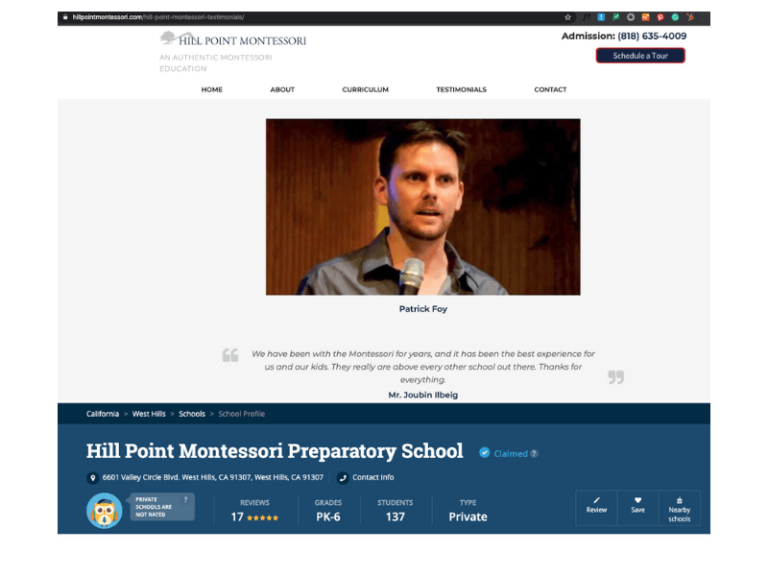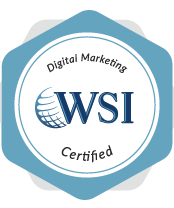As a parent of an elementary school aged child, I have spent countless hours perusing private (and public) school websites. Browsing through websites, reading reviews, researching social pages is all part of a prospective parents’ process. So what was different about Website A over Website B or Website C, D, and X? Surprisingly, it is in the details. Details that may seem not as crucial have a relevant impact on a prospective parent.
All parents want to know, like and trust the school they choose. So how do you get a parent to know, like and trust your school so that they’ll request more information, come in for a tour and hopefully become a client? It starts with your website and the trust signals it provides.
Here are the top 8 trust signals that Montessori websites need:
1. Contact Information
A local phone number is actually one of the strongest trust signals. For schools, it should be placed in the upper right corner where prospective parents will naturally look for it. Parents want to be able to call your school, look up the address and email your school. Your website should also have a clear “Contact Us” button that directs parents to a page and contact form.
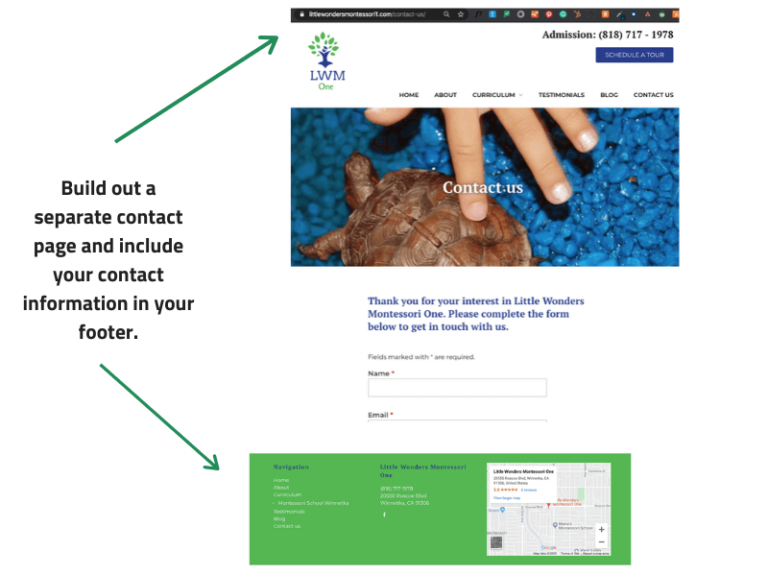
2. SSL Security
Does your website have a SSL certificate? A SSL certificate helps make the site more secure and web browsers will show a secure icon next to your website address. Not only does this help your website’s credibility, but it is also something that search engines such as Google look for when trying to determine the quality of the website.
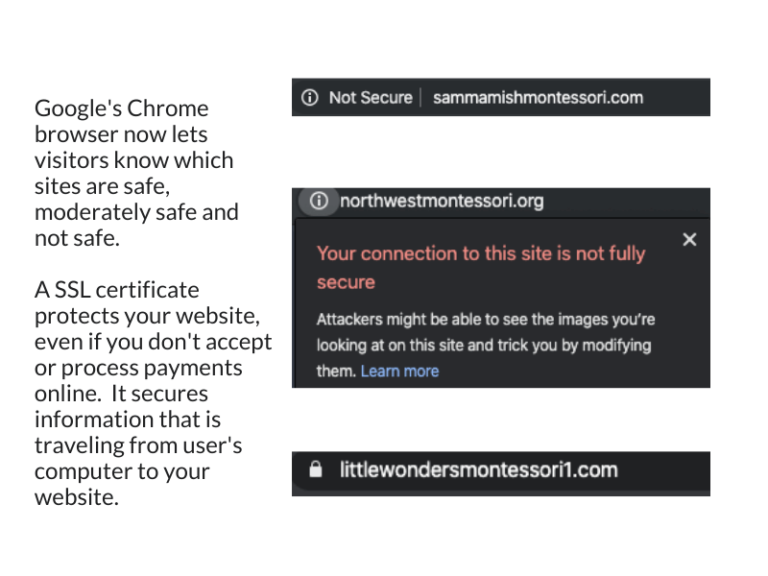
3. Use real photos
Using real photos can help a prospective parent visualize their child at your school. Parents want to get a sense of the teachers who will be caring for their children. One way to help foster a connection and build trust is through the use of photos. They build instant credibility as they help the prospective parent clearly see your school’s environment and culture.
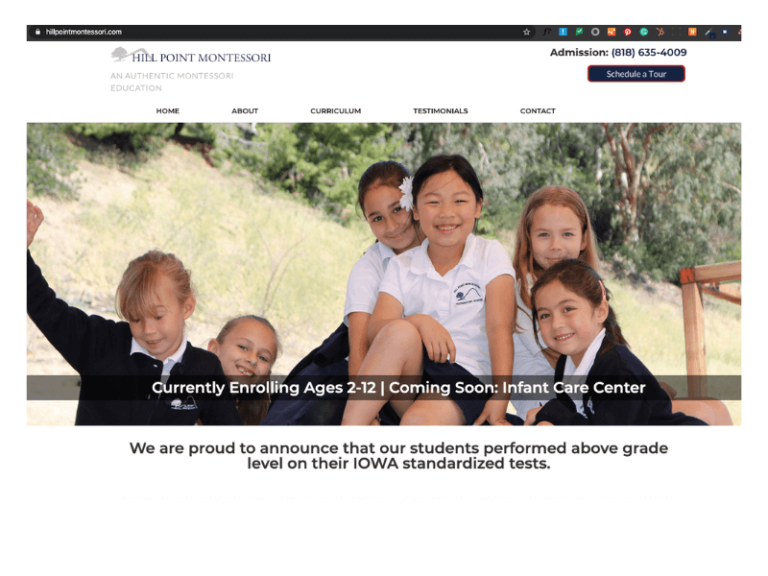
4. Accreditations, professional memberships, certifications, licenses
Some schools carry an AMS, AMI, or local Montessori certification. Many have teachers and administrators with impressive backgrounds that include personal certifications or advanced degrees. Include as many of these as you have.
5. Privacy Policy
Having a policy in place signals you hold your school to certain standards and you are transparent about those standards. A privacy policy informs parents on how you handle the information you choose to gather.
6. Socially active
Having an active social media account, such as a Facebook page, provides a way for parents to contact you. Some schools create a private Facebook group to communicate news and events to enrolled students and parents.
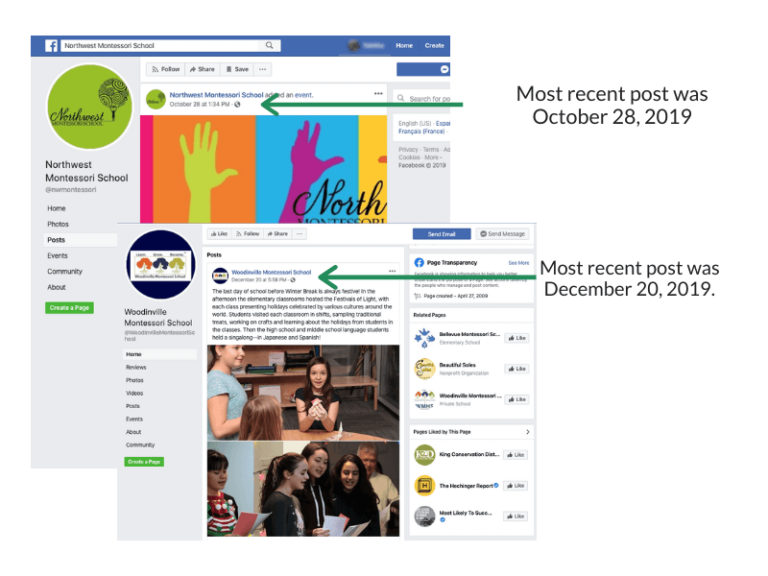
7. Student Achievements/Assessments
Does your school conduct an annual assessment (such as the Iowa Test of Basic Skills)? If yes, then you should consider sharing the test results of your students. Sharing this information shows prospective parents the inherent authority a Montessori education provides.
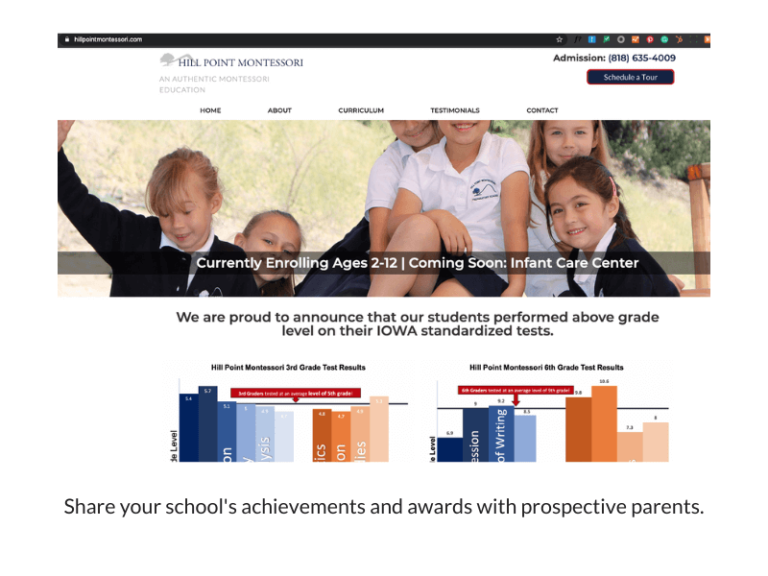
8. Social proof
Social proof is reviews and testimonials. Prospective parents are reading Google, Yelp, and Facebook reviews. Not only are they reading positive reviews, but they are searching for any negative reviews and how your school has responded. Add the online reviews to your website. Video testimonials are the best.
